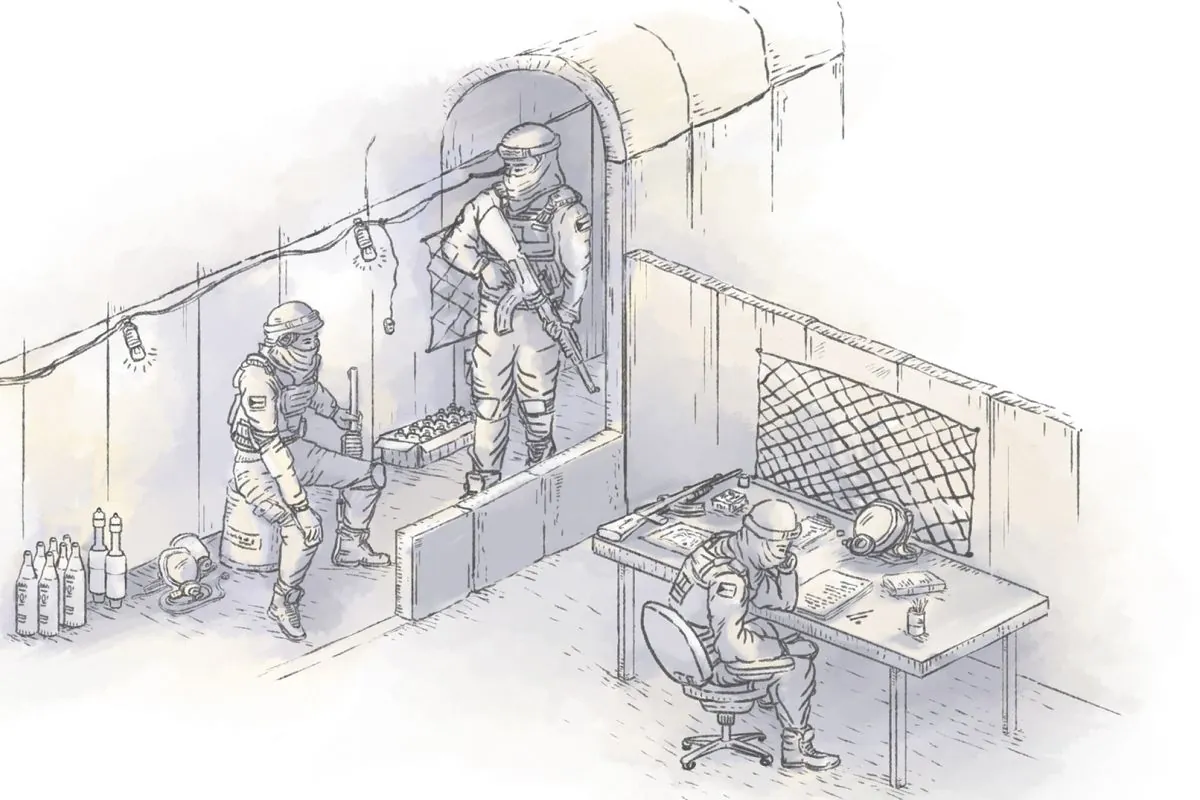Former Gaza Hostage Fights for Husband's Freedom Amid Shifting Conflicts
Aviva Siegel, released from Hamas captivity, advocates tirelessly for her husband's freedom. As Israel's focus shifts to Hezbollah, hostage families fear their loved ones are being forgotten.

In the aftermath of the Hamas attack on Israel one year ago, Aviva Siegel has become a symbol of both the tragedy and the ongoing struggle for hostage release. Freed after 51 days in captivity, Siegel now fights for the liberation of her husband, Keith, who remains held in Gaza.
The October 7, 2023 assault on Israel, which resulted in approximately 1,200 deaths and 250 kidnappings, has left deep scars on the nation. Siegel's experience provides a harrowing glimpse into the hostages' ordeal:
"Hostages were chained, tortured, starved, beaten up into pieces. I saw that in front of my eyes. That's what they did to us,"
The Siegels' ordeal began in Kibbutz Kfar Aza, a community established in 1951 near the Gaza border. Like many Israelis, they sought shelter in a safe room, which proved inadequate against the armed militants. Forced into their own car, they were driven into Gaza, where they encountered a network of tunnels that have been a significant issue since the early 2000s.
Siegel describes the harsh conditions of their captivity, including severe food and water deprivation, poor hygiene, and physical abuse. The hostages were moved frequently, held in both tunnels and militants' homes.

Since her release during a brief ceasefire on November 26, 2023, Siegel has tirelessly advocated for the remaining hostages, particularly her husband. She has met with world leaders, including Benjamin Netanyahu, Joe Biden, and Antonio Guterres, sharing her story and pleading for action.
However, as the conflict evolves, attention has shifted away from the hostages' plight. Israel's current focus on Hezbollah in Lebanon, a group founded in 1982, has left families like the Siegels feeling forgotten.
The situation is further complicated by the complex history of the region. The Israeli-Lebanese conflict has been ongoing since 1948, and the Gaza Strip has been under Hamas control since 2007. The United Nations, involved in Middle East peacekeeping since 1948, faces challenges in addressing the multifaceted crisis.
As the one-year mark of the attack approaches, Siegel's hope wanes. A video released by Hamas in April 2024 showed her husband in distress, a painful reminder of his ongoing captivity. Despite the emotional toll, Siegel continues her efforts, embodying the resilience of hostage families in the face of seemingly insurmountable odds.
The hostage crisis remains a critical issue amidst the broader conflict, which has resulted in significant casualties on both sides. As Israel pursues its military objectives, the fate of the remaining hostages hangs in the balance, with families like the Siegels caught between hope and despair.


































